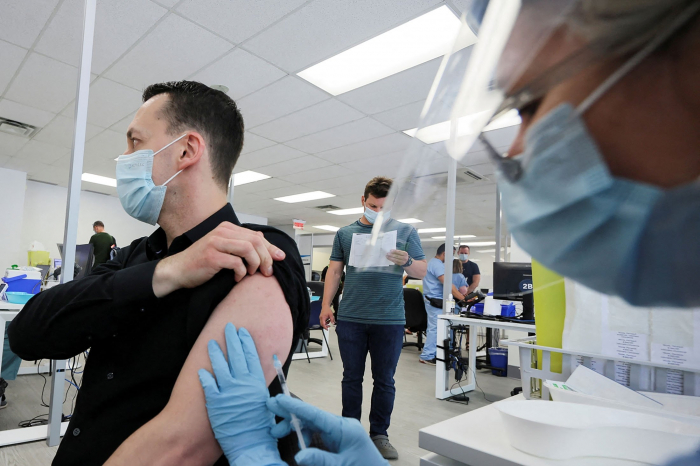With more than 6,000 cases worldwide, the World Health Organization (WHO) is set to reconvene a meeting to decide whether to declare the monkeypox outbreak a global health emergency, the organization's highest level of alert, the organization said Wednesday.
The United Nations health agency's Director-General Tedros Adhanom Ghebreyesus said he would hold a second meeting of the emergency committee on monkeypox, with more than 6,000 cases now confirmed in 58 countries.
A surge in monkeypox infections has been reported since early May outside the West and Central African countries where the disease has long been endemic.
"I continue to be concerned by the scale and spread of the virus," Tedros told a press conference from the WHO's headquarters in Geneva.
"Testing remains a challenge and it's highly probable that there are a significant number of cases not being picked up."
On June 23, the WHO convened an emergency committee of experts to decide if monkeypox constitutes a so-called Public Health Emergency of International Concern (PHEIC) – the highest alarm that the WHO can sound.
However, a majority found the situation had not yet crossed that threshold.
Europe epicenter
"My teams are following the data. I plan to reconvene the emergency committee so they're updated on the current epidemiology and evolution of the monkeypox outbreak, and implementation of counter measures," Tedros said.
"I will bring them together in the week of July 18 or sooner if needed."
The WHO's 16-member emergency committee on monkeypox is chaired by Jean-Marie Okwo-Bele from the Democratic Republic of Congo, who is a former director of the WHO's Vaccines and Immunisation Department.
There have been six PHEIC declarations since 2009, the last being for COVID-19 in 2020 – though the sluggish global response to the alarm bell still rankles at the WHO's headquarters.
A PHEIC was declared after a third emergency committee meeting on Jan. 30 that year. But it was only after March 11, when Tedros described the rapidly worsening situation as a pandemic, that many countries seemed to wake up to the danger.
Tedros said Europe was the current epicenter of the outbreak, recording more than 80% of monkeypox cases globally this year.
In Africa, cases are appearing in countries not previously affected and record numbers are being recorded in places with previous monkeypox experience, he added.
Vaccines scarce
Most monkeypox infections so far have been observed in men who have sex with men, of young age and chiefly in urban areas, according to the WHO.
The normal initial symptoms of monkeypox include a high fever, swollen lymph nodes and a blistery chickenpox-like rash.
Initial outbreak cases had no epidemiological links to areas that have historically reported monkeypox, suggesting that undetected transmission might have been going on for some time.
Tedros commended people sharing videos on social media talking about their symptoms and experiences with monkeypox.
"This is a positive way to break down the stigma about a virus that can affect anyone," he said.
The WHO's current plan to contain the spread focuses on raising awareness among affected population groups and encouraging safe behaviors and protective measures.
"WHO is working with countries and vaccine manufacturers to coordinate the sharing of vaccine, which are currently scarce and need to be accessible to the most at-risk people," said Tedros.
More about: #WHO
















































